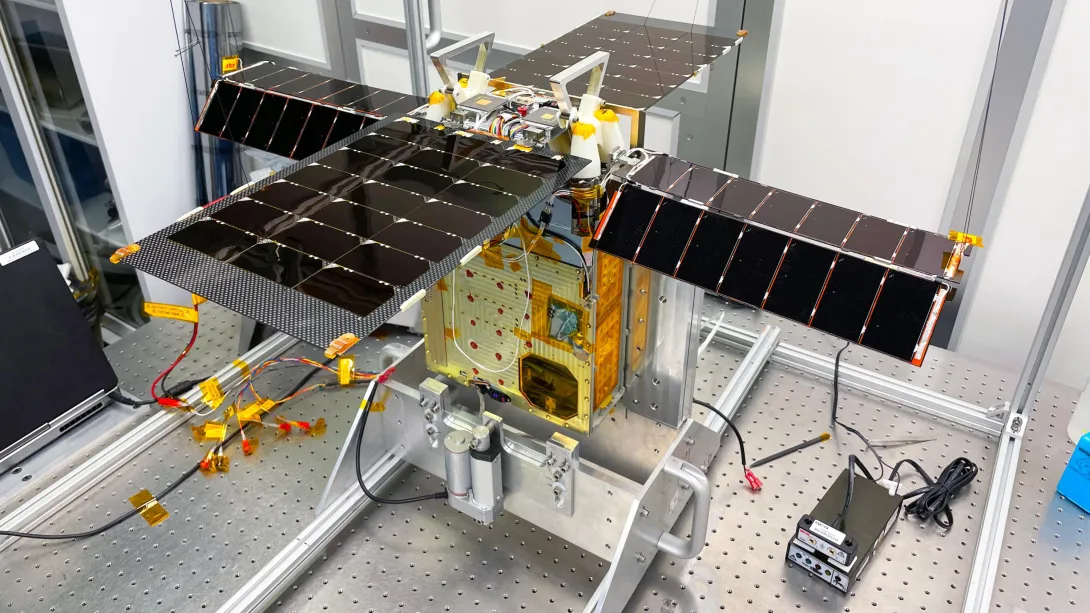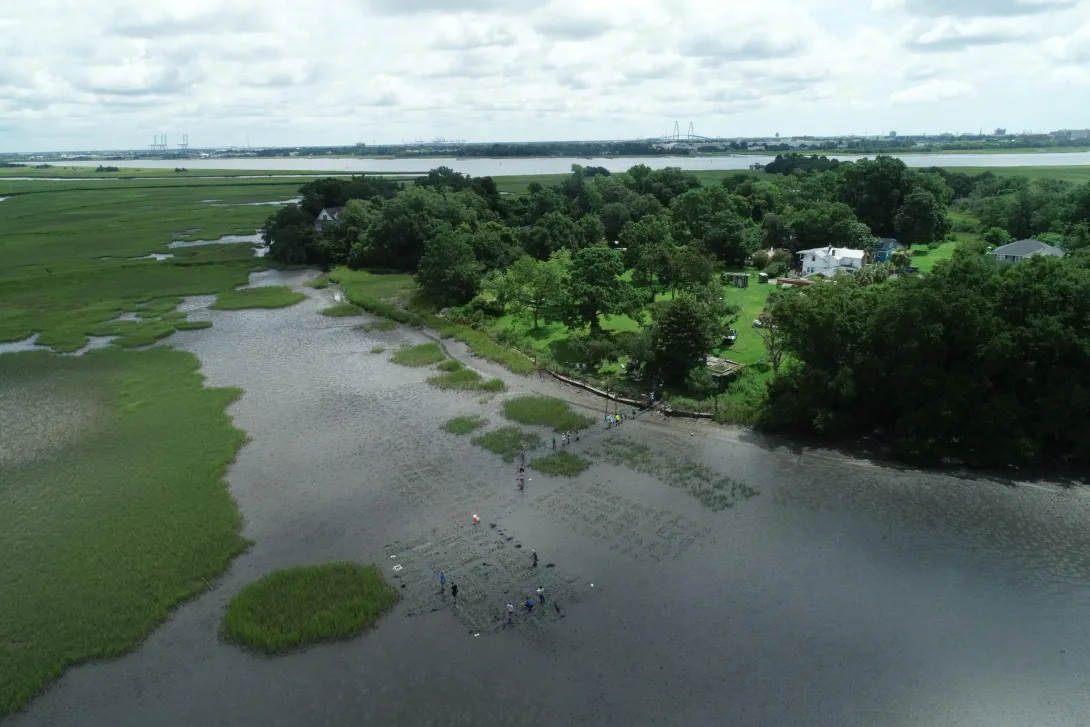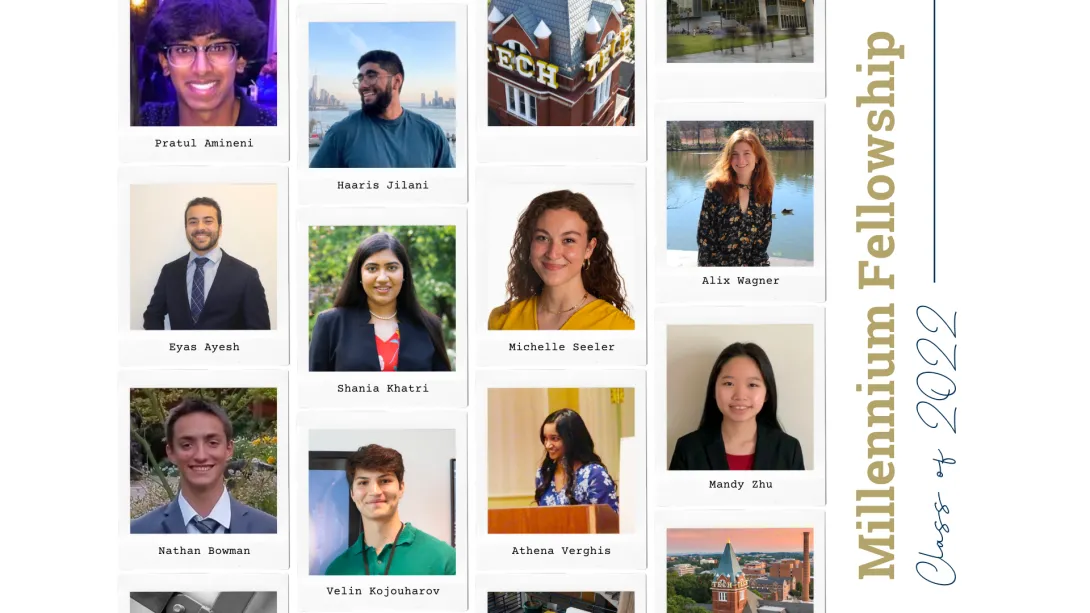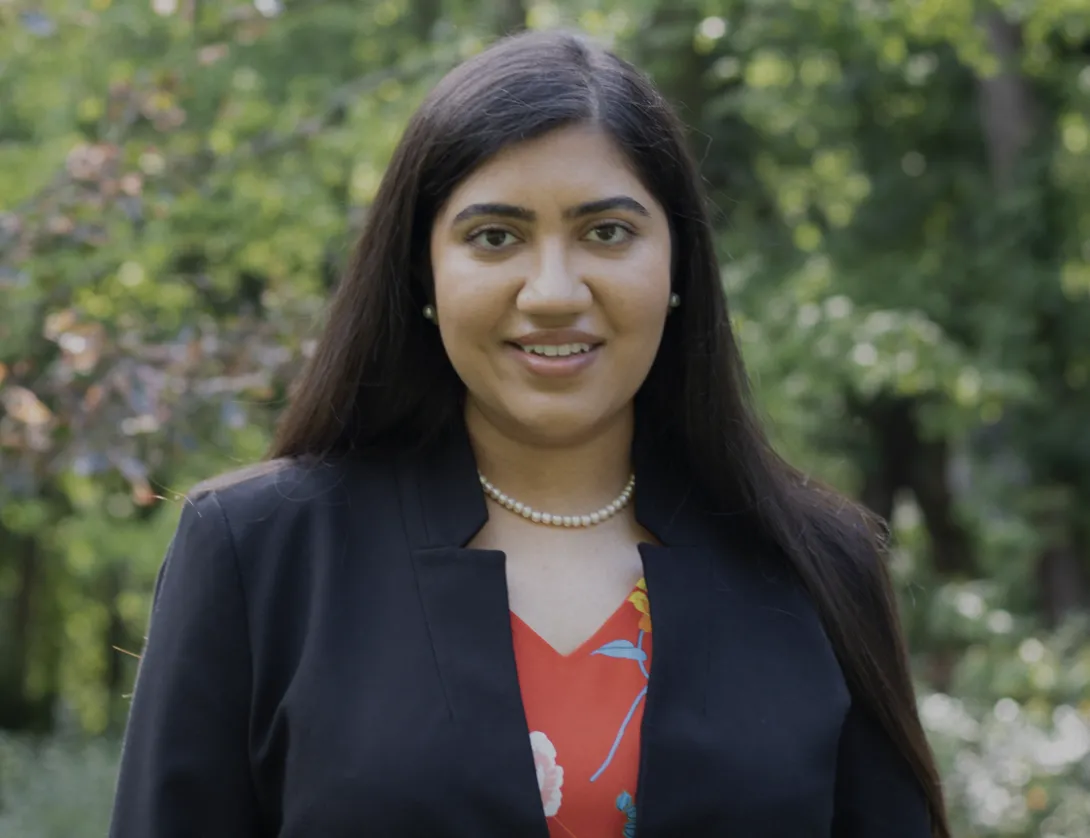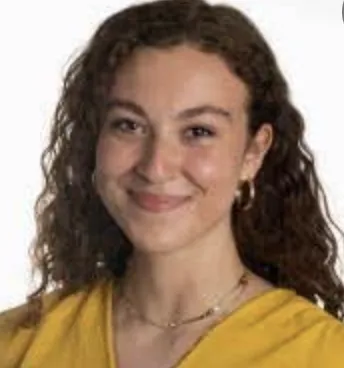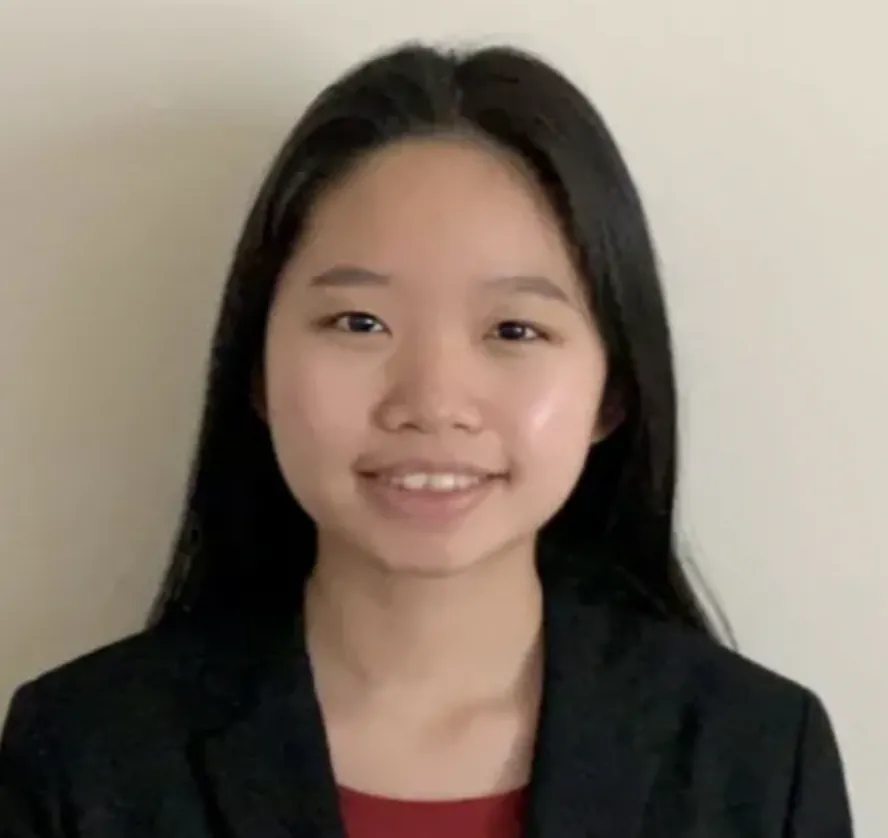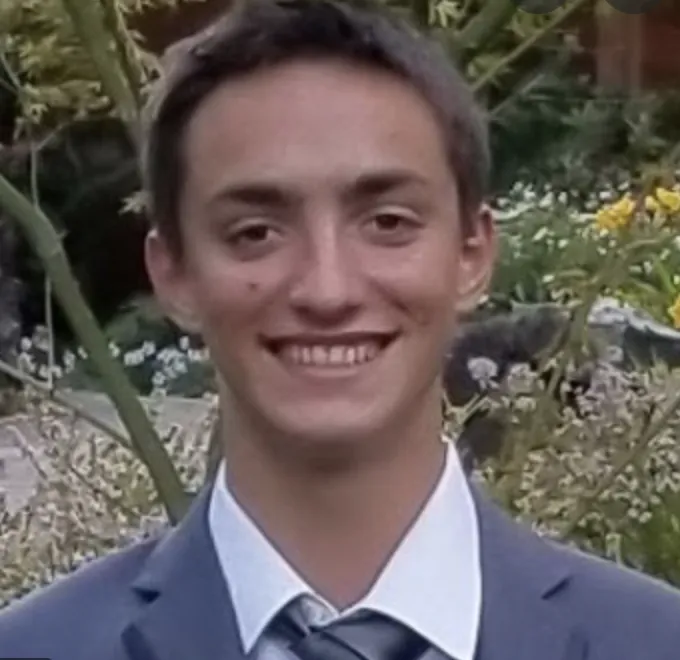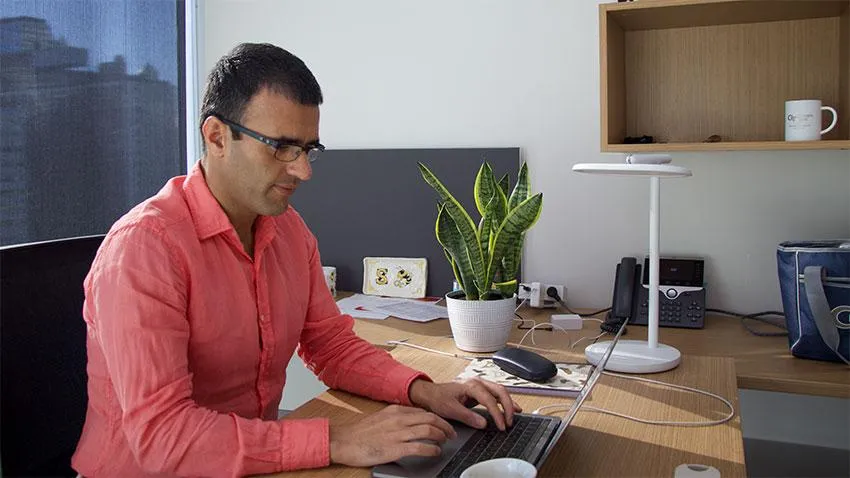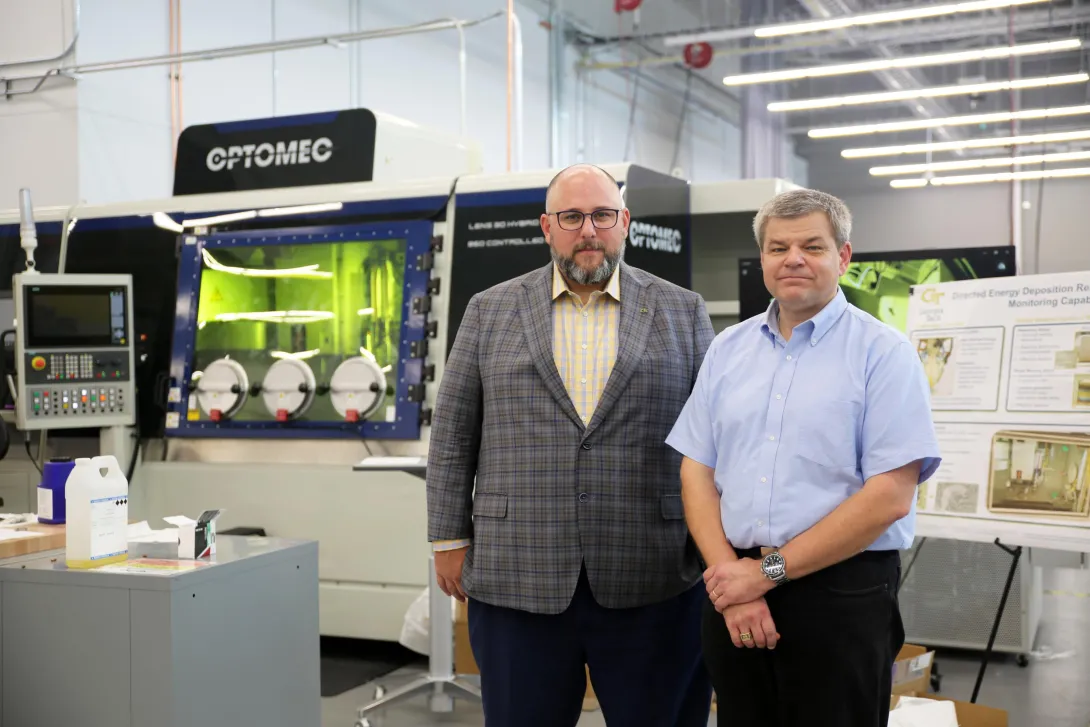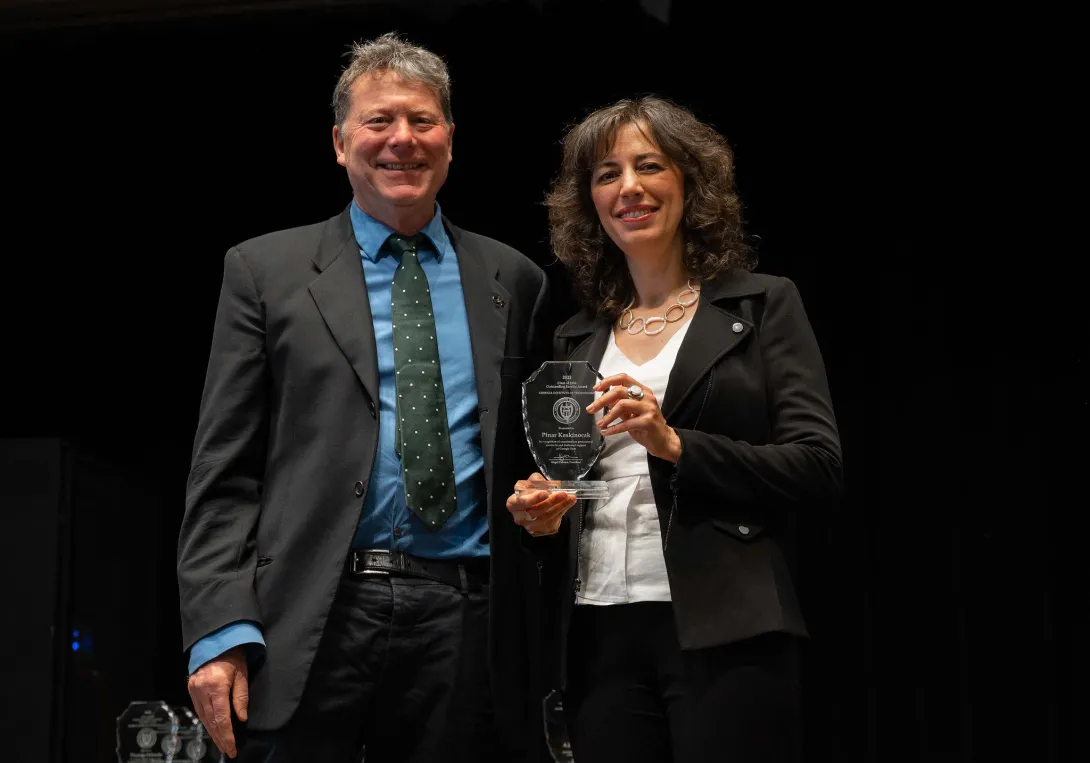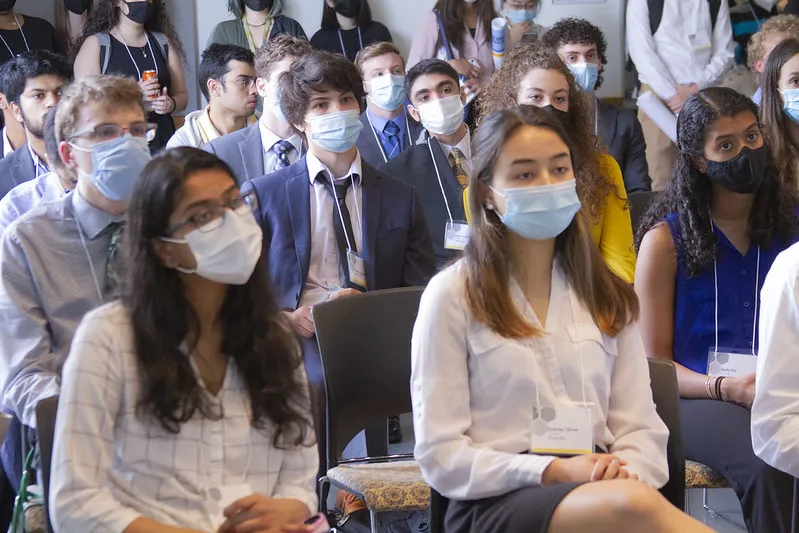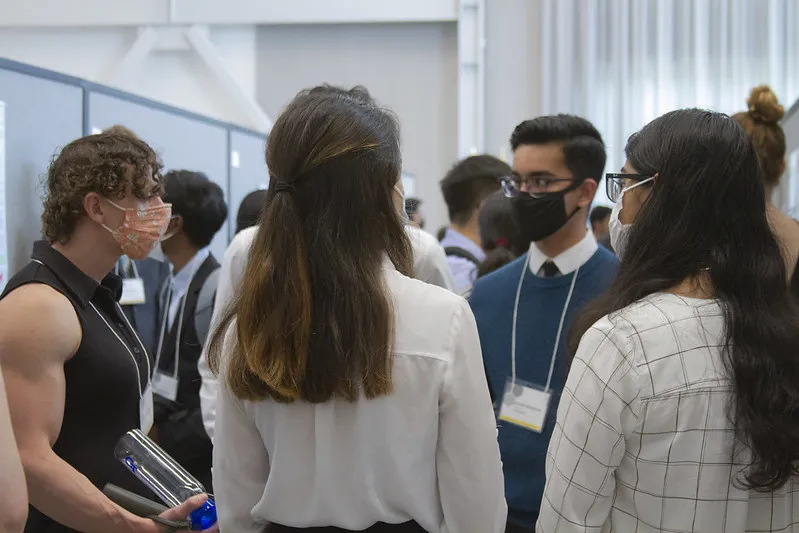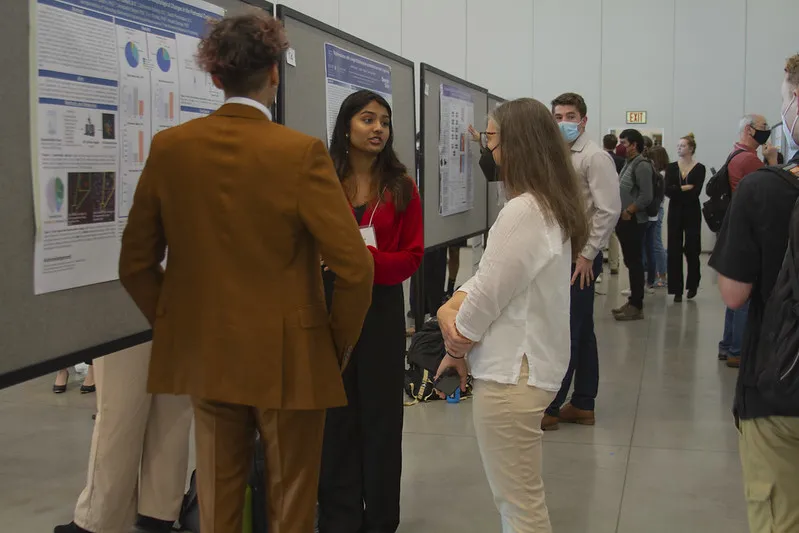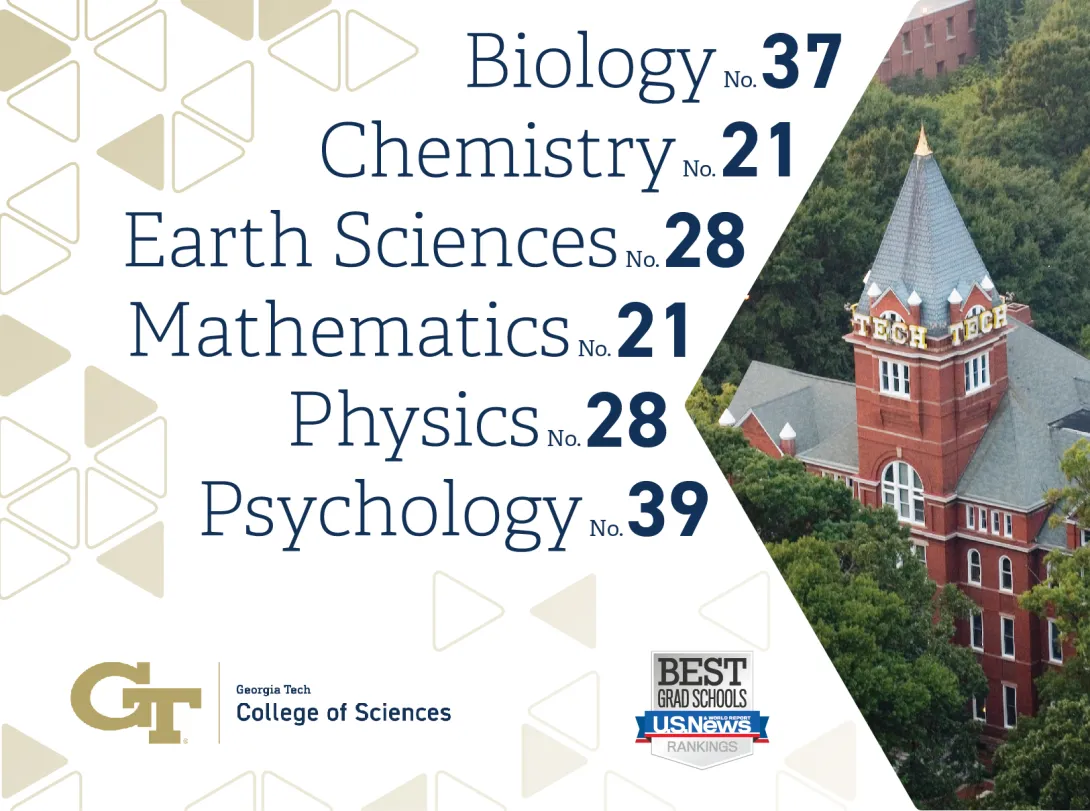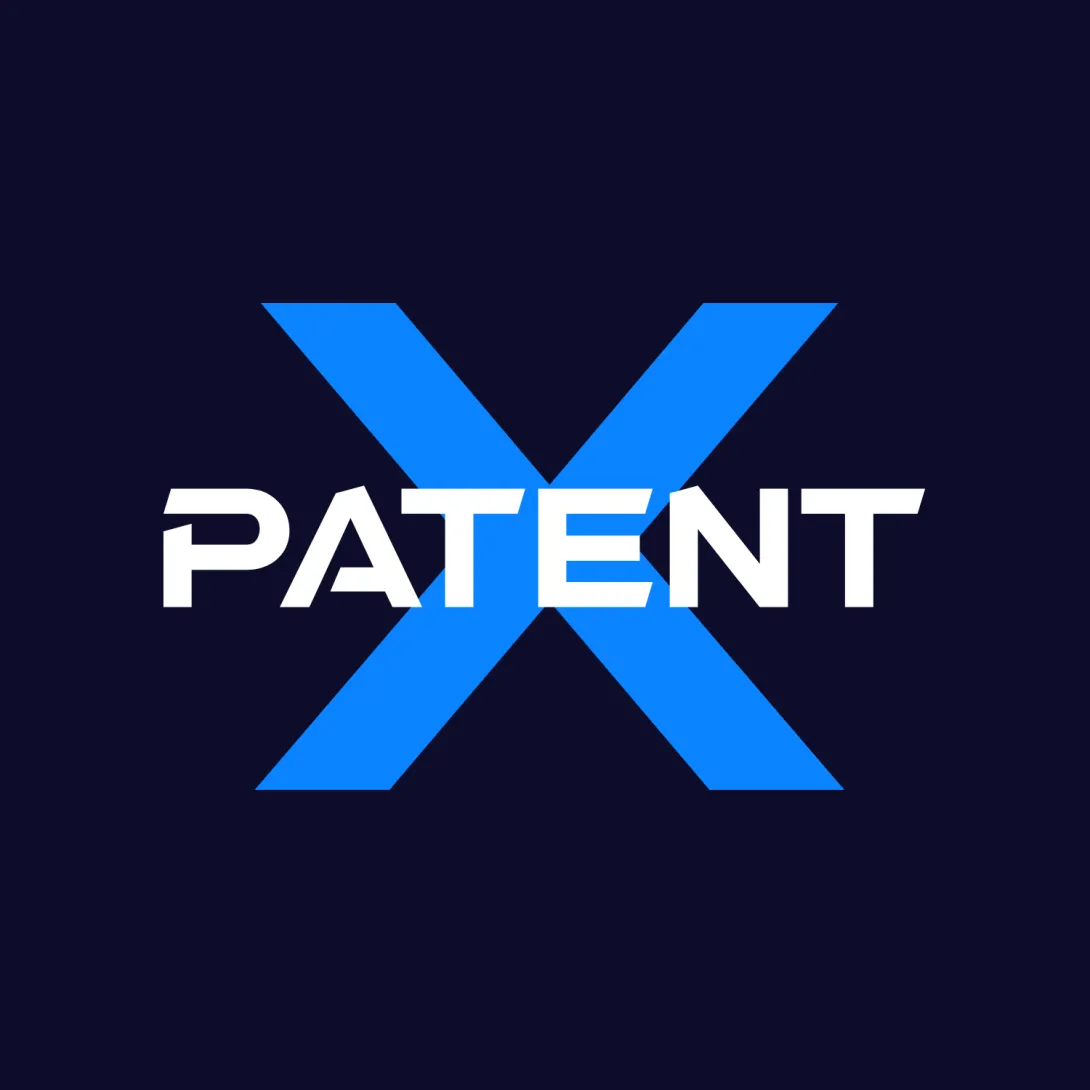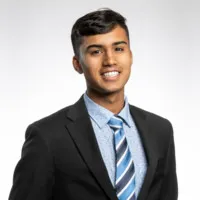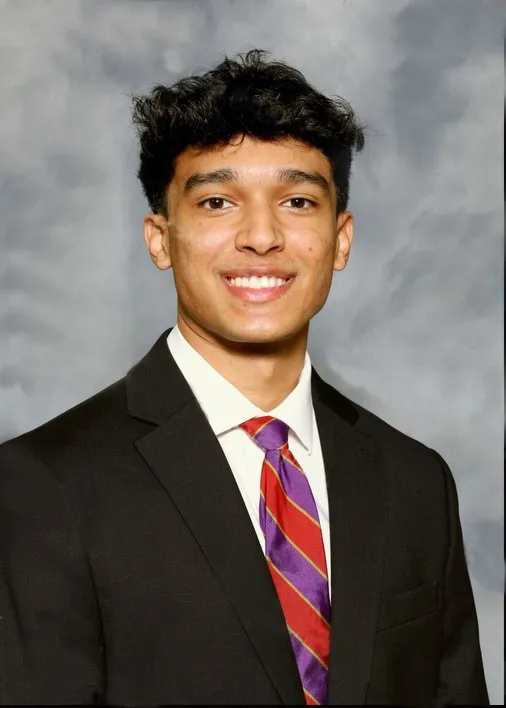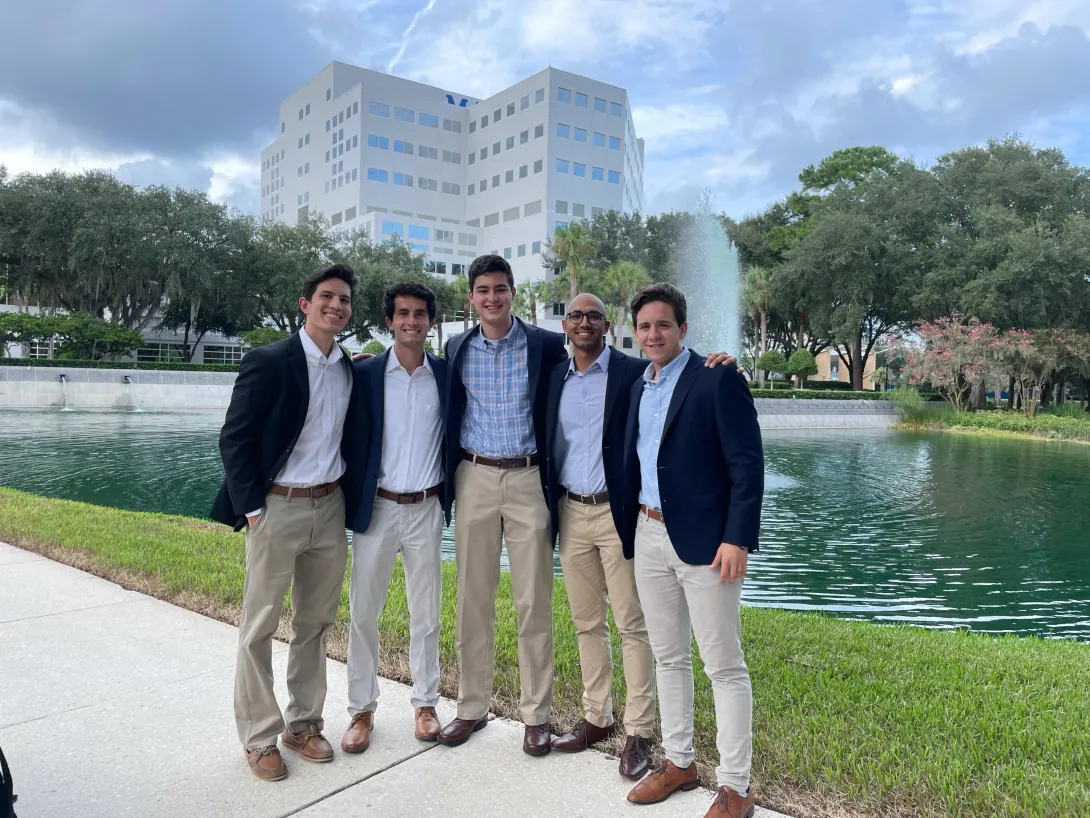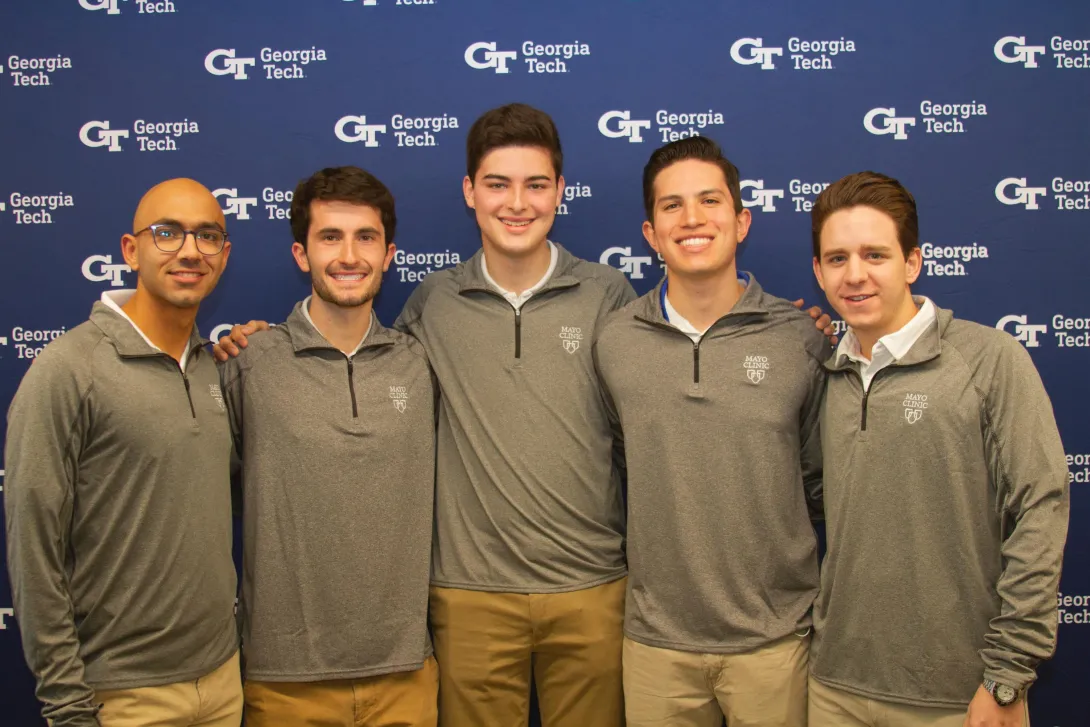Jan. 09, 2023
A small spacecraft assembled and tested at the Georgia Institute of Technology is on its way to the moon, where it will use lasers to search for surface water ice in lunar craters that are never warmed by light from the sun.
The briefcase-sized Lunar Flashlight will be monitored and controlled over the next several months by a team of graduate and undergraduate students in Georgia Tech’s School of Aerospace Engineering. The team will keep the spacecraft on track and capture the data it gathers to be studied by the Lunar Flashlight Science team.
Watch a video on the Lunar Flashlight mission on YouTube
The spacecraft launched at 2:38 a.m. December 11 on a SpaceX Falcon 9 rocket that also carried a Japanese-built lunar lander and a United Arab Emirates rover. Shortly after launch, Lunar Flashlight separated from the Falcon 9 to begin an approximately three-month journey that will carry it into a fuel-conserving orbital trajectory 42,000 miles beyond the moon. Gravity from the moon, Earth, and Sun will ultimately bring it into a path that will come within nine miles of the lunar surface.
Once in its science orbit around the moon, Lunar Flashlight will shine four lasers into perpetually-dark craters near the lunar South Pole. Each laser operates at a slightly different frequency, and the reflected light acts like a spectral fingerprint that identifies the material that it illuminated. If ice is there, the near-infrared light from the lasers will be absorbed by the water. If the light reflects back to the Lunar Flashlight, that will indicate the absence of ice. Data from the spacecraft will be radioed to NASA’s Deep Space Network and received by student controllers on the Georgia Tech campus, who will then share it with the Lunar Flashlight Science Team.
Surface water ice may be a treasure trove of water from different sources such as volcanic outgassing and meteorite impact, so knowing where it resides will help point future assets to examine it at the surface. If sufficient amounts exist, the precious liquid may be used to help meet the drinking water needs of future lunar colonies. Water molecules from potential ice reservoirs in the South Pole craters could also be split to provide a source of oxygen for breathing and hydrogen for rocket fuel.
Big Capabilities in a Small Spacecraft
Despite its small size, Lunar Flashlight – which was designed by NASA’s Jet Propulsion Laboratory – has big capabilities. Lunar Flashlight carries a propulsion system that will be used to make mid-course corrections and allow the spacecraft to get into lunar orbit and accomplish its mission. Built at Georgia Tech’s School of Aerospace Engineering, the propulsion system uses a new monopropellant developed at the Air Force Research Laboratory to be more environmentally safe than earlier propellants.
“It’s a very capable spacecraft for sure,” said Jud Ready, a Georgia Tech Research Institute (GTRI) principal research engineer who served as principal investigator for the final assembly and testing of Lunar Flashlight at Georgia Tech. “Achieving lunar orbit insertion can be challenging for a conventional spacecraft, let alone a vehicle the size of a desktop computer.”
The solar-powered Lunar Flashlight is part of a new generation of small spacecraft with capabilities formerly seen only on larger vehicles. First used in low earth orbit, the smaller vehicles are now traveling to the moon, and potentially to other planets in the solar system.
“Space exploration was formerly the realm of major governments – the United States, Russia, China, Japan, and a few others,” said Ready. “Using smaller spacecraft like Lunar Flashlight means a lot more opportunity for this. There will likely be thousands of other small spacecraft launching behind us.”
A Learning Experience for GTRI and Georgia Tech
Final assembly of the Lunar Flashlight took place in a cleanroom in a GTRI building on the main Atlanta campus, where the laser system also was tested. Specialized equipment at GTRI’s Cobb County Research Facility tested the spacecraft’s radio equipment and simulated the stresses of launch. Thermal, vacuum, and other testing took place in Georgia Tech’s School of Aerospace Engineering.
For the faculty, staff, and students involved, Lunar Flashlight has provided a great learning experience.
“We learned how to apply NASA’s rigorous protocols to everything we did, protect the spacecraft from electrostatic discharge, schedule complex testing tasks, and utilize our student researchers who must also maintain their schoolwork and take exams,” Ready said. “There have been some real sacrifices by a lot of folks who worked long and odd hours.”
After completion of the final assembly and testing at Georgia Tech, Lunar Flashlight traveled to the Marshall Space Flight Center in Huntsville, Alabama, for fueling and additional testing. Finally, it made the trip to the Cape Canaveral Space Force Station in Florida for integration onto the SpaceX rocket.
Ready is hopeful that if Lunar Flashlight finds evidence of significant ice deposits on the moon’s South Pole, the precious water will help set the stage for creating a permanent human presence there.
“It’s really disappointing that we went to the moon in the 1970s, but didn’t stay there,” he said. “However, when you look at the big scheme of things, exploration is often measured in hundreds or even thousands of years. So, it’s not surprising that colonization of the moon would take longer than a few decades.”
Writer: John Toon (john.toon@gtri.gatech.edu).
GTRI Communications
Georgia Tech Research Institute
Atlanta, Georgia USA
About GTRI: The Georgia Tech Research Institute (GTRI) is the nonprofit, applied research division of the Georgia Institute of Technology (Georgia Tech). Founded in 1934 as the Engineering Experiment Station, GTRI has grown to more than 2,800 employees, supporting eight laboratories in over 20 locations around the country and performing more than $700 million of problem-solving research annually for government and industry. GTRI's renowned researchers combine science, engineering, economics, policy, and technical expertise to solve complex problems for the U.S. federal government, the state, and industry. For more information, please visit www.gtri.gatech.edu.
News Contact
(Interim) Director of Communications
Michelle Gowdy
Michelle.Gowdy@gtri.gatech.edu
404-407-8060
Dec. 06, 2022
For marine scientist, climate activist, and Tech alumnus Albert George (MS HSTS 2009), the fight against climate change is also a fight for home.
Now, what started as a citizen science initiative led by George has turned into a $2.6 million National Fish and Wildlife Association effort to restore degraded salt marshes in Charleston, South Carolina. As part of the project, Joel Kostka, professor and associate chair of Research in the School of Biological Sciences, will lead a team of researchers to not only monitor these restoration efforts, but gain insights into why the marshes degraded in the first place — and how to prevent it from happening in the future.
Over the past three years, Kostka, who has a joint appointment in the School of Earth and Atmospheric Sciences, has worked with SCDNR and Robinson Design Engineers, a local firm co-led by Tech alum Joshua Robinson (CEE 2005), to develop engineering and design plans for the restoration of the salt marshes.
“That project went really well,” shared Kostka, “and now we have developed engineering and design plans for the actual restoration as we are moving forward with the next phase.”
Work for the current phase of the project is set to begin soon. Over the next four years, community volunteers will work to plant marsh grasses, restore oyster reefs, and excavate the tidal creeks that supply the marsh with sea water.
“Because if we don't do this work,” George shared, “then basically it means a place that I grew up in and a place that I call home will no longer exist.”
News Contact
Writer:
Audra Davidson, College of Sciences
Editor and Contact:
Jess Hunt-Ralston
Director of Communications
College of Sciences at Georgia Tech
Oct. 03, 2022
Note: This story, written by Cory Hopkins, first appeared on the website of the Office Of Undergraduate Education, and has been tailored for our audiences.
Ten Georgia Tech students, including four from the College of Sciences, were selected for the 2022 Millennium Fellowship, a joint leadership program of the Millennium Campus Network (MCN) and the United Nations Academic Impact (UNAI).
The fellowship is an ambitious program to help make the United Nations Sustainable Development Goals (SDG) and UNAI principles a reality. The Class of 2022 Millennium Fellows have been selected among a record-breaking 31,397 applicants from over 2,417 campuses across 140 nations.
Millennium Fellows are university undergraduates selected based on their leadership on sustainable development-related projects that advance the SDGs in their communities. As Millennium Fellows, they will participate in a semester-long leadership development program to improve their student organizing, partnership building, and community impact skills.
"Students' ongoing pursuit of the Millennium Fellowships reflects Georgia Tech's larger commitment to pursuing solutions on a global scale. The fellowship supports real-world initiatives in sustainable development, providing leadership training and a community of like-minded recipients," said Shannon Dobranski, director of Pre-Graduate and Pre-Professional Advising in the Georgia Tech Career Center. "Each year, the Millennium Fellowship helps Georgia Tech students invested in sustainability to identify and connect with each other. It also helps them to refine and articulate their own goals related to sustainability and the impact they hope to have on their community now and in the future."
Three School of Biological Sciences students are included in the latest cohort of Millennium Fellows: Shania Khatri, Michelle Seeler, and Mandy Zhu. Biochemistry major Nathan Bowman, also invited to the Fellows program, plans to pursue his project at a later date.
The College of Sciences students join six more Georgia Tech Millennium Fellows:
- Pratul Amenini, Biomedical Engineering
- Eyas Ayesh, Mechanical Engineering
- Haaris Jilani, Biomedical Engineering
- Velin Kojouharov, Mechanical Engineering
- Athena Verghis, Environmental Engineering
- Alix Wagner, Biomedical Engineering
The Millennium Fellowship Class of 2022 includes over 3,000 Millennium Fellows on 200 campuses in 37 nations that are participating in the program this year. The Class of 2022 is on track to engage in projects collectively advancing all 17 Sustainable Development Goals and all 10 UNAI Principles.
Georgia Tech's fellowship recipients will take part in a semester-long development program divided into three parts:
1. CONVENE
- Georgia Tech Millennium Fellows will convene on-campus to learn from and challenge each other. Millennium Fellows convene at least 8 times during the program.
2. CHALLENGE
- Students will develop a plan of action for their sessions together, meet to exchange best practices, and think bigger.
3. CELEBRATE
- When the cohort meets their goals and completes the Fellowship graduation requirements, they will earn a certificate of recognition from United Nations Academic Impact and Millennium Campus Network.
Learn more about the Millennium Fellowship here.
How to Apply for This Fellowship and More
Promoting and supporting the Millennium Fellowship is a team effort each year. Pre-Graduate and Pre-Professional Advising works with fellowship administrators to host information sessions and Serve-Learn-Sustain reaches out to the SLS community to spread the word. Students interested in the Millennium Fellowship, or any nationally or internationally competitive award, should follow up by scheduling an appointment with Prestigious Fellowships Advisor, Karen Mura, on AdvisorLink.
Pre-Graduate and Pre-Professional Advising is part of the Office of Undergraduate Education (OUE). Learn more about OUE by following @gtoue on Instagram, Twitter, and Facebook.
News Contact
Writer: Cory Hopkins
Contact: Renay San Miguel
Communications Officer II/Science Writer
College of Sciences
404-894-5209
Sep. 28, 2022
Advancement in technology brings about plenty of benefits for everyday life, but it also provides cyber criminals and other potential adversaries with new opportunities to cause chaos for their own benefit.
As researchers begin to shape the future of artificial intelligence in manufacturing, Georgia Tech recognizes the potential risks to this technology once it is implemented on an industrial scale. That’s why Associate Professor Saman Zonouz will begin researching ways to protect the nation’s newest investment in manufacturing.
The project is part of the $65 million grant from the U.S. Department of Commerce’s Economic Development Administration to develop the Georgia AI Manufacturing (GA-AIM) Technology Corridor. While main purpose of the grant is to develop ways of integrating artificial intelligence into manufacturing, it will also help advance cybersecurity research, educational outreach, and workforce development in the subject as well.
“When introducing new capabilities, we don’t know about its cybersecurity weaknesses and landscape,” said Zonouz. “In the IT world, the potential cybersecurity vulnerabilities and corresponding mitigation are clear, but when it comes to artificial intelligence in manufacturing, the best practices are uncertain. We don’t know what all could go wrong.”
Zonouz will work alongside other Georgia Tech researchers in the new Advanced Manufacturing Pilot Facility (AMPF) to pinpoint where those inevitable attacks will come from and how they can be repelled. Along with a team of Ph.D. students, Zonouz will create a roadmap for future researchers, educators, and industry professionals to use when detecting and responding to cyberattacks.
“As we increasingly rely on computing and artificial intelligence systems to drive innovation and competitiveness, there is a growing recognition that the security of these systems is of paramount importance if we are to realize the anticipated gains,” said Michael Bailey, Inaugural Chair of the School of Cybersecurity and Privacy (SCP). “Professor Zonouz is an expert in the security of industrial control systems and will be a vital member of the new coalition as it seeks to provide leadership in manufacturing automation.”
Before coming to Georgia Tech, Zonouz worked with the School of Electrical and Computer Engineering (ECE) and the College of Engineering on protecting and studying the cyber-physical systems of manufacturing. He worked with Raheem Beyah, Dean of the College of Engineering and ECE professor, on several research papers including two that were published at the 26th USENIX Security Symposium, and the Network and Distributed System Security Symposium.
“As Georgia Tech continues to position itself as a leader in artificial intelligence manufacturing, interdisciplinarity collaboration is not only an added benefit, it is fundamental,” said Arijit Raychowdhury, Steve W. Chaddick School Chair and Professor of ECE. “Saman’s cybersecurity expertise will play a crucial role in the overall protection and success of GA-AIM and AMPF. ECE is proud to have him representing the school on this important project.”
The research is expected to take five years, which is typical for a project of this scale. Apart from research, there will be a workforce development and educational outreach portion of the GA-AIM program. The cyber testbed developed by Zonouz, and his team will live in the 24,000 square-foot AMPF facility.
News Contact
JP Popham
Communications Officer | School of Cybersecurity and Privacy
Georgia Institute of Technology
jpopham3@gatech.edu | scp.cc.gatech.edu
Sep. 06, 2022
Aaron Stebner outlined an aggressive plan for artificial intelligence and manufacturing when he applied for a faculty position in 2019. In his cover letter, he promised “to establish the Georgia Institute of Technology as a world leader in additive manufacturing of solid materials (ceramics & metals) R&D, especially in the fusion of data sciences and AI to create new, world-leading technologies.”
Stebner thought it would take 10-15 years of incremental steps and funding to achieve the goal. He was wrong.
Thanks to a new $65 million grant from the U.S. Department of Commerce’s Economic Development Administration, announced by President Joe Biden, Stebner’s plan will begin to become a reality — and include the entire state of Georgia and all of its manufacturing sectors from agriculture to airplanes — two years after arriving on campus.
The largest of the nine projects within the larger Georgia AI Manufacturing (GA-AIM) technology corridor grant will allow Stebner and Georgia Tech to transform the Advanced Manufacturing Pilot Facility (AMPF) into the Artificial Intelligence Manufacturing Pilot Facility (AI-MPF). The 24,000 square-foot facility on 14th Street will more than double in size after Georgia Tech and statewide GA-AIM partners were selected as one of 21 Phase II awardees in the $1 billion Build Back Better Regional Challenge (BBB) competition, part of the Investing in America’s Communities initiative under the American Rescue Plan Act of 2021.
AMPF has been a shell waiting for a vision like Build Back Better to fill it out,” said Stebner, associate professor the George W. Woodruff School of Mechanical Engineering and the School of Materials Science and Engineering. “Now we will transform the facility into one of the nation’s first manufacturing labs designed for autonomy with the goal of helping the state and the nation to be world AI manufacturing leaders.”
Read the entire story on the College of Engineering website.
News Contact
Jason Maderer
College of Engineering
maderer@gatech.edu
Jun. 01, 2022
School of Industrial and Systems Engineering Professor Pinar Keskinocak was recognized at Georgia Tech’s annual 2022 Faculty and Staff Honors Luncheon with the Class of 1934 Outstanding Service Award. The award recognizes her long service both to the Institute and to her field.
Keskinocak has long served as a leader with the Institute for Operations Research and the Management Sciences (INFORMS). A fellow with the institute, she has served as president, vice president of membership and professional recognition, and is the co-founder and former president of the INFORMS Section on Public Programs, Service, and Needs, and the president of the INFORMS Health Applications Society.
At Georgia Tech she has also served as the College of Engineering Advance Professor for six years and was a leading voice over the past three years of the Covid-19 pandemic. In addition to working with the Georgia Department of Public Health, she served on the Institute’s Covid task force helping to establish an institutional approach to the pandemic.
“It’s an honor, first of all, to have had the opportunity to serve,” she said. “Our communities at Georgia Tech and beyond are wonderful, so to be recognized among all of these outstanding contributors is a great honor.”
Keskinocak’s research focuses on the application of operations research and management science with society impact, particularly regarding health and humanitarian applications, supply chain management, and logistics. She is the director of ISyE’s Center for Health and Humanitarian Systems. Recent work has focused on infectious disease modeling in response to Covid-19.
Apr. 27, 2022
By Frida Carrera
On Wednesday, April 13th 2022, the Undergraduate Research Opportunities Program (UROP) hosted the 16th annual Spring Undergraduate Research Symposium. UROP’s annual symposium is Georgia Tech’s largest undergraduate research colloquium and allows students to present their research and gain valuable skills and presentation experience. Each year the symposium also presents awards to the top poster and oral presentation from each college and honors the Outstanding Undergraduate Researcher (OUR) from each college. And with over 40 oral presentations and nearly 90 poster presentations, this year’s symposium proved to be another success for UROP and Georgia Tech.
This year the symposium was held in Exhibition Hall and opened with an introduction and keynote address to students, faculty, and other non-presenters. Shortly after, the event moved into the poster presentations segment where undergraduate students displayed their research to judges, faculty, and other attendees. The oral presentations followed soon after and gave student researchers the opportunity to go more in-depth with their research and findings and answer any questions the judges and attendees had. To end the event, sponsoring colleges and departments recognized Outstanding Undergraduate Researchers from their respective colleges. Additionally, the symposium judges were tasked with selecting the top student researchers having exceptional poster and oral presentations.
Any Georgia Tech undergraduate student interested in presenting their research is encouraged to apply for future symposiums and to build on research presentation skills, connect with other undergraduate researchers and faculty, and the chance to be recognized with awards by members of the Georgia Tech research community. UROP also hosts other research-related events and workshops throughout the school year to assist undergraduate students interested in research and build on their passions!
To view the list of awardees and pictures from the event visit: https://symposium.urop.gatech.edu/awards/
To learn more about undergraduate research at Georgia Tech visit: https://urop.gatech.edu/
Mar. 29, 2022
The College of Sciences at Georgia Tech continues to make progress in the graduate school rankings published by U.S. News and World Report.
Released on March 29, the 2023 U.S. News Best Graduate School Rankings highlights all six College of Sciences schools as best overall science programs for graduate studies:
Biology – No. 37
Chemistry – No. 21
Earth Sciences – No. 28
Mathematics – No. 21
Physics – No. 28
Psychology – No. 39
Biological Sciences rose 17 places (from No. 54) in a nine-way tie with Albert Einstein College of Medicine, Brown University, Carnegie Mellon University, Dartmouth College, Indiana University-Bloomington, Ohio State University, University of Utah, and UT Health MD Anderson Cancer Center.
Chemistry and Biochemistry shifted from No. 20 in a four-way tie with Johns Hopkins University, University of California (UC)-San Diego, and Texas A&M University-College Station.
Earth and Atmospheric Sciences rose by 10 (from No. 38) in a tie with Ohio State University, University of Southern California, and Washington University in St. Louis.
Mathematics advanced by five, up from No. 26 in a tie with Carnegie Mellon, Johns Hopkins, UC-San Diego, and University of Illinois Urbana-Champaign.
Physics maintains its No. 28 ranking in a tie with Brown University, Duke University, and Rice University.
Psychology rose six spots to No. 39 in a tie with Arizona State University, Michigan State University, Stony Brook University, University of Florida, University of Iowa, and University of Pittsburgh.
U.S. News previously ranked graduate science programs in their 2019 Best Graduate Schools Edition (published in March 2018) with the exception of Psychology, which is categorized under U.S. News “Social Sciences and Humanities” programs and was last ranked in the 2017 Edition.
Among specialty graduate programs, Analytical Chemistry and Condensed Matter (Physics) both rank in the top 20, while previously unranked Applied Math climbed into the top 16 to No. 11.
Mathematical Analysis and Topology tied for No. 18 and No. 15, respectively, and Tech remains top five in the nation for Discrete Math and Combinatorics. Uniquely organized across the Colleges of Sciences, Computing, and Engineering, the Institute’s Algorithms, Combinatorics, and Optimization program previously held a rank of No. 2.
Analytical Chemistry – No. 17
Applied Math – No. 11
Condensed Matter – No. 18
Discrete Math and Combinatorics – No. 5
Mathematical Analysis – No. 18
Topology – No. 15
“I was very happy to see that several of our schools in the College of Sciences moved up in the rankings, in some cases quite significantly,” shares Matthew Baker, professor in the School of Mathematics and associate dean for Faculty Development in the College.
Fellow colleges on campus are also on the rise in the latest U.S. News “Best Graduate Schools” set, with Engineering remaining in the top ten in its overall disciplines, and Business, Computing, and Public Affairs also ranking among top programs in the nation. The full roster of current Georgia Institute of Technology rankings can be found here, along with U.S. News’ methodology for graduate rankings here.
News Contact
Jess Hunt-Ralston
Director of Communications
College of Sciences at Georgia Tech
Mar. 18, 2022
By Frida Carrera
During the summer of 2021, computer science student Neil Sanghavi and computer science recent grad Ahan Shah, both from Fairfax, VA, reconnected to catch up with one another and discuss the projects they were working on. In doing so they discovered a mutual resolve to create something using innovative technology and solve a problem relating to intellectual property, specifically patents. Both Neil and Ahan had just started to get into crypto trading and realized that NFT technology had more to offer than its collectible aspect. Here the idea of PatentX was created: to use NFT technology to provide utility in an antiquated space that lacked efficiency.
“It is estimated that we have $1 trillion in unused IP in the United States currently. Additionally, it is reported that there is $25.6 billion worth of patent monetization available today. This is why we created PatentX, a blockchain-backed marketplace to facilitate intellectual property transactions. We built this to make sure the little man innovators and entrepreneurs have an outlet to monetize and connect their patents with the world. Not only that, we are creating tools for large businesses, law firms, venture capitals to manage all of their IP on the blockchain that can handle transactions in seconds.”
Neil and Ahan describe their product launch process as a great learning experience and are firm believers that there can never be too much help. They are currently supported by DXPartners and have received help from various mentors and blockchain professionals. They have been able to traverse obstacles and learn about the marketing, finance, and business aspects behind building a startup despite coming from a technical background.
Their vision for PatentX is to disrupt the traditional way intellectual property is being transacted and to become the World’s Next Web3 Patent Office. PatentX will be releasing an NFT collection of the most historic patent innovations this early March and encourage interested individuals to stay tuned for their launch.
To learn more about PatentX visit their social media:
Twitter: @PatentXNFT
Instagram: @PatentX.io
To learn more about student innovation at Georgia Tech visit: https://innovation.cae.gatech.edu/
Mar. 14, 2022
By Frida Carrera
On April 2, 2022, Team carSEAL will represent Georgia Tech in the 6th annual ACC InVenture Prize Competition hosted this year by Florida State University. Team members Shovan Bhatia, Joshua Cruz, Nicholas Lima, Derek Prusener, and Giancarlo Riccobono will compete against other teams in the ACC Conference for a chance to win up to $30,000 in prizes.
carSEAL began with five biomedical engineering students collaborating on a capstone project. After being accepted into the highly sought-after Mayo Clinic Capstone Project, they received mentorship from Dr. Rabih Tawk, a world-renowned neurosurgeon. With his guidance, they learned that surgeons currently lack the tools to close the carotid artery after endovascular procedures. Through a pragmatic approach, the team developed 100+ conceptual designs and iterations. After numerous discussions with attending surgeons across the nation and preliminary testing, they developed carSEAL – a vascular closure device for the carotid artery.
So far, the team has found the InVenture Prize process to be exhilarating.
“Through each round of this process, we have seen incredible teams working on impactful projects and it is exciting to be surrounded by such brilliant minds from numerous backgrounds. It has been especially rewarding working with so many supportive advisors from Georgia Tech, who have been through the startup process and have freely offered their expertise. Along each step of this process, we have learned something new to refine our pitch and ensure we are presenting our most competitive self at the ACC.”
Currently, aside from preparing for the ACC InVenture Prize, the carSEAL team is performing benchtop lab testing to evaluate its efficacy in animal models. Soon after, the team will be moving to pre-clinical studies on their path to obtaining FDA clearance before carSEAL is commercialized. Winning the ACC InVenture Prize would help them gain more traction and gather sufficient funds to help them with this process.
“I am extremely proud of our team’s achievements in the short 6 months that we have worked together. carSEAL has gained a lot of traction already and we are excited to see how far we can take this, hopefully bringing carSEAL to clinical practice within a few years,” Bhatia stated.
The Georgia Tech community can support carSEAL in the competition by voting for them for the People’s Choice Awards by visiting: https://accinventureprize.com/peoples-choice-voting. Online voting begins March 28.
To learn more about the ACC InVenture Prize visit https://accinventureprize.com.
Pagination
- Previous page
- 6 Page 6
- Next page

